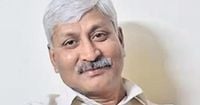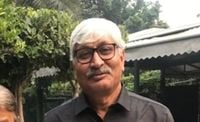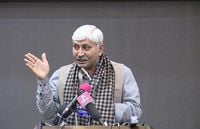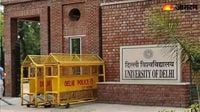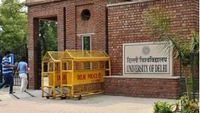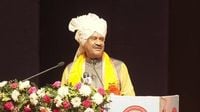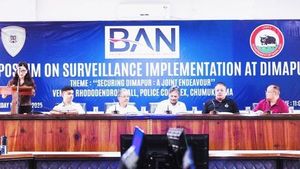NEW DELHI — A dispute over academic freedom has erupted at Delhi University (DU) after Professor Apoorvanand Jha was denied permission to attend an international seminar, with the university administration demanding he submit the text of his lecture for approval. This incident has raised serious questions about the autonomy of the institution and the extent of governmental interference in academic affairs.
Professor Jha, a senior faculty member in the Hindi department, was set to participate in the 20th anniversary celebrations of the India-China Institute at The New School in New York from April 23 to May 1, 2025. His scheduled talk was titled “The University under a Global Authoritarian Turn,” a theme that has now taken on an ironic twist given the circumstances surrounding his travel approval.
On April 2, Jha received an email from DU stating that the university was “unable to grant permission” for his leave and that it needed to seek advice from the Union Ministry of Education. This was followed by a request from the university’s registrar on April 17, demanding that he submit the text of his proposed lecture for government vetting. Jha described this requirement as “unprecedented” and a violation of both institutional autonomy and academic freedom.
In a letter addressed to DU Vice-Chancellor Yogesh Singh on April 15, Jha expressed his dismay at the university’s decision to involve the government in what he believed should be an internal matter. “I fail to understand what made the university forgo the principle of institutional autonomy and invite intervention of an outside agency,” he wrote. He noted that there is no established rule requiring government clearance for faculty travel or leave.
“You kindly suggested that I should share my talk to be given at the India-China Institute, which could be attached with the file to make it easy for the ministry to take a decision. Does it mean that the content of my talk would now be vetted before permission for participation in an academic event be given?” Jha asked in his correspondence with the registrar.
The Democratic Teachers’ Front (DTF) has condemned the university’s actions, labeling them as an “attack on academic freedom.” In a letter to the Vice-Chancellor, the DTF described the demand for speech vetting as “an act of censorship” and warned that such actions could damage the university’s global reputation and reflect a deeper erosion of institutional integrity.
Jha, who had submitted his leave application more than 35 days in advance through the university’s online Samarth portal, has taken to social media to voice his concerns. He posted, “Delhi Univ adm wants to vet and approve the text of my talk for the India China Institute, New School (New York) event and seek the advice of the government to decide about granting me leave. How should a teacher respond to a demand like this?”
The situation has sparked wider debates about academic liberty in Indian higher education. Experts have noted that several universities in India have faced criticism in recent years for allegedly limiting professors’ freedom to engage with international academic communities, particularly on politically sensitive topics.
In his letter to the Vice-Chancellor, Jha highlighted the broader implications of the university’s actions. “We have seen sadly that in the last few years, diktats from the ministry and the University Grants Commission (UGC) are implemented in the university with great zeal. It has created a culture in which we start handing over our powers to those agencies which have no role in the affairs of the university,” he stated.
Despite repeated attempts to get a response from the DU administration, Vice-Chancellor Yogesh Singh has remained silent on the matter. However, a senior DU official was quoted by The Indian Express saying that the decision to seek advice from the ministry was taken “in light of the international context.”
The lack of a clear-cut policy for faculty participation in academic conferences has led to confusion among DU faculty members, who have sometimes applied for various types of leave, including casual leave, special casual leave, duty leave, or earned leave, depending on which had the highest chances of approval. This contrasts sharply with practices in top-tier universities worldwide, where participation in academic events is considered a fundamental part of a faculty member’s work.
As the dates for the New York seminar approach, it remains unclear whether Professor Jha will receive the necessary approval to attend. The case raises significant questions about the approval procedures for faculty travel and whether new oversight mechanisms are being quietly implemented at one of India’s premier universities.
In light of the ongoing situation, many are watching closely to see how this incident will unfold and what it might mean for the future of academic freedom and institutional autonomy at Delhi University and beyond. The outcome of this case could set a concerning precedent for requiring pre-approval of academic content before professors are permitted to participate in international scholarly exchanges.
